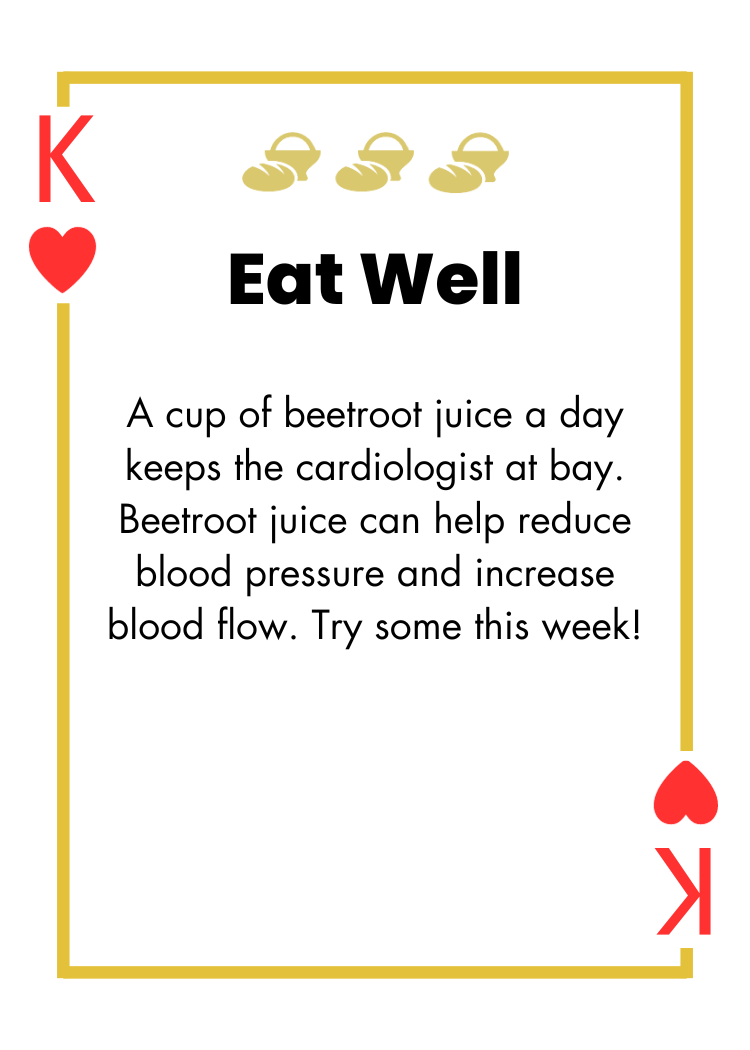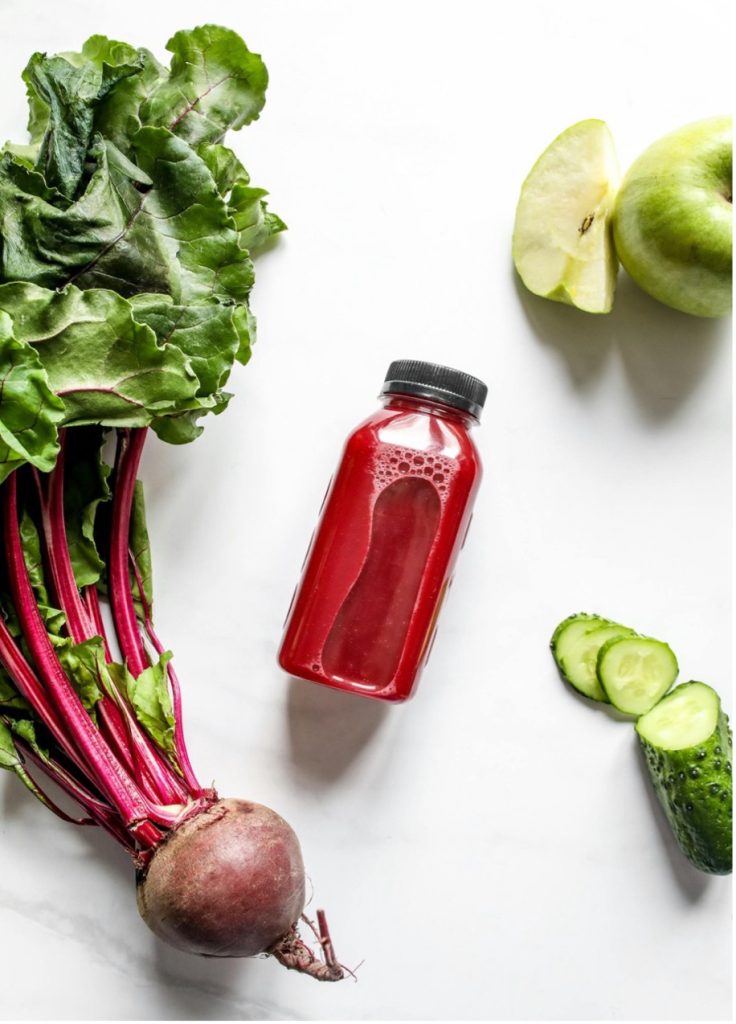King of Hearts - Beetroot Juice

A research topic very close to Imago Director Aj Ali’s heart, literally!
Beets are high in nitrates which have been proven to reduce blood pressure, putting less strain on the heart and helping to increase oxygen intake. Resulting in benefits to mental wellbeing, physical activity and sleep.

Try a cup of beetroot juice every day this week and see if you can find a health edge – even if it’s just 1%.
Small changes CAN make a big difference – this is what The 1% Club is all about.
Beet juice is an excellent source of potassium and essential minerals like iron and manganese.
Drinking beet juice on a regular basis may help to lower blood pressure, reduce Low-Density Lipids (LDL) or the “bad” form of cholesterol, and improve stamina. Beet juice can help maintain a healthy weight and aid in the prevention or reduction of fatty deposits forming in your liver (McDermott 2024).
The available data on beetroot shows it is a powerful dietary source of health promoting agents, holding potential as therapeutic treatment for several medical disorders. The strong antioxidant, anti-inflammatory and vascular-protective effects provided by beetroot and its components have been clearly demonstrated by several types of human and animal studies. As a result, beetroot juice is increasing in popularity as a nutritional approach to help manage cardiovascular disease and cancer. In the human studies to date, beetroot supplementation has been reported to:
- Lower blood pressure;
- Weaken inflammation;
- Deter oxidative stress;
- Preserve endothelial function;
- Restore cerebrovascular blood flow (Clifford et al., 2015).
Additionally, beetroot juice is becoming increasingly popular amongst athletes with the goal of improved sport performances. The juice contains high concentrations of nitrate, which can be converted into nitric oxide after consumption. Nitric oxide has various functions in the body including widening blood vessels (vasodilation) which reduces blood pressure, increases oxygen and improves nutrient delivery to essential organs. These effects indicate beetroot juice may help with the prevention and treatment of cardiovascular disease. Furthermore, the drinking of beetroot juice has a positive impact on oxygen delivery to skeletal muscles, muscle function and sports performance (Zamani et al., 2021). Supplementation with nitrate-rich beetroot juice has been shown to improve exercise performance and cardiovascular responses linked to increased nitric oxide availability (Stanaway et al., 2017).
Before making any major changes in your diet, ensure you consult with a qualified nutritionist or physician, especially if you have pre-existing health conditions. Our dietitians are expertly qualified and available to help you out with any questions!
Sometimes a person’s urine and stools may turn red or pinkish after eating beets. This condition is called beeturia and is harmless. However, if a person has low blood pressure, drinking beet juice regularly may increase the risk of your pressure dropping too low. Ensure to monitor your blood pressure carefully and often. Finally, if an individual is prone to calcium oxalate kidney stones it may be best to avoid beet juice since beets are high in oxalates. Oxalates are naturally occurring substances that form crystals in your urine and too much of this substance may form stones (McDermott 2024).
Clifford, T., Howatson, G., West, D. J., & Stevenson, E. J. (2015). The potential benefits of red beetroot supplementation in health and disease. Nutrients, 7(4), 2801-2822.
McDermott, A. (2024). 11 reasons to drink more Beet Juice. Healthline. https://www.healthline.com/health/food-nutrition/beetroot-juice-benefits#takeaway
Stanaway, L., Rutherfurd-Markwick, K., Page, R., & Ali, A. (2017). Performance and health benefits of dietary nitrate supplementation in older adults: A systematic review. Nutrients, 9(11), 1171.
Zamani, H., De Joode, M. E. J. R., Hossein, I. J., Henckens, N. F. T., Guggeis, M. A., Berends, J. E., … & van Breda, S. G. J. (2021). The benefits and risks of beetroot juice consumption: a systematic review. Critical reviews in food science and nutrition, 61(5), 788-804.


 See Other Cards!
See Other Cards!